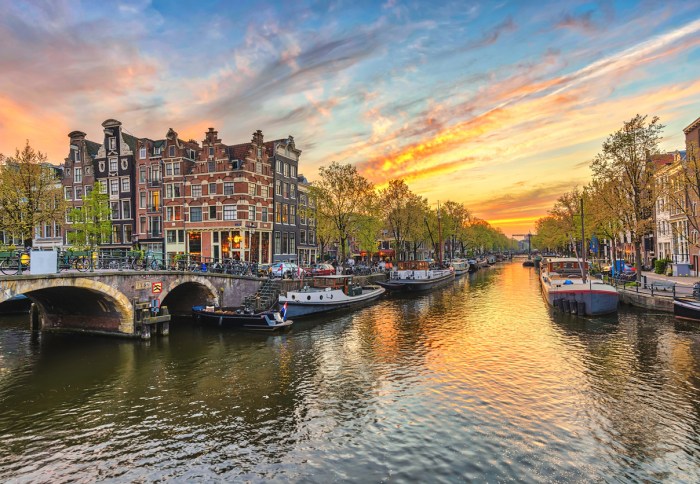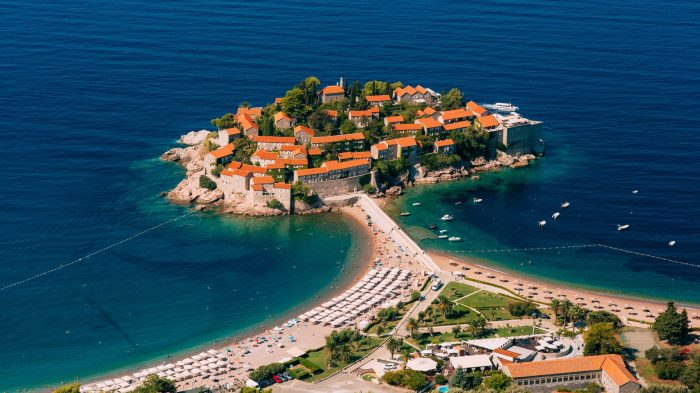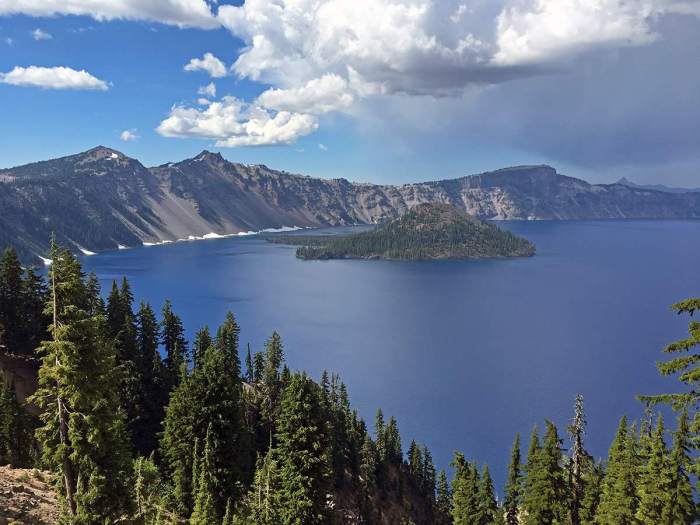How To Make Travel An Investment $$$
How To Make Travel An Investment $$$ takes center stage, and we’re diving deep into how your wanderlust can be more than just a vacation – it can be a savvy financial strategy. Think about it: you’re not just racking up memories, you’re building skills, expanding your network, and even generating income.
This isn’t just a travel guide; it’s a blueprint for turning your travel dreams into a profitable reality.
We’ll explore how to plan trips strategically, uncover travel hacking secrets, and even show you how to turn your travel experiences into a career. Whether you’re looking to score free flights, find hidden gems on a budget, or start a travel-based business, this guide has you covered.
Understanding Travel as an Investment
Travel is often viewed as a luxury or a vacation, but it can be a powerful investment in your future. It can lead to financial gains, personal growth, and even career advancement. Think of it as an opportunity to expand your horizons and unlock new possibilities.
Financial Returns
Travel can be a significant financial investment, but it can also yield substantial returns. Investing in travel experiences can lead to increased earning potential, business opportunities, and even passive income streams.
- Career Advancement:Travel can expose you to new industries, cultures, and perspectives, broadening your skillset and making you a more competitive candidate in the job market. For example, a trip to a tech hub like Silicon Valley could provide valuable insights into the latest trends and connect you with potential employers.
- Business Opportunities:Travel can be a gateway to new business ventures. It allows you to explore potential markets, connect with partners, and identify lucrative opportunities. Imagine attending a trade show in a foreign country and securing a major contract, generating substantial income.
Traveling can be a serious investment in yourself! Not only does it broaden your horizons and create unforgettable memories, but it can also lead to personal growth and even career opportunities. If you’re looking for some inspiration, check out this list of the Top 10 Islands To Visit In Europe , and start planning your next adventure.
Who knows, your next trip could be the start of a new chapter in your life!
- Passive Income:Travel can inspire new business ideas or lead to opportunities for passive income generation. For instance, a trip to a remote destination could spark a passion for photography, leading to a side hustle selling prints online.
Personal Growth
Beyond financial benefits, travel offers significant opportunities for personal growth and development. It fosters self-discovery, expands your worldview, and builds resilience. It’s an investment in your well-being and future happiness.
- Self-Discovery:Stepping outside your comfort zone and immersing yourself in new cultures can lead to profound self-discovery. Traveling solo, for example, can help you understand your strengths and weaknesses better, build confidence, and develop independence.
- Expanded Worldview:Travel exposes you to diverse perspectives and ways of life, challenging your assumptions and broadening your understanding of the world. It helps you become more tolerant, empathetic, and open-minded.
- Resilience:Traveling can present unexpected challenges, requiring you to adapt and overcome obstacles. This process builds resilience, problem-solving skills, and a sense of adaptability, which are valuable assets in any aspect of life.
Long-Term Benefits
The benefits of travel extend far beyond the immediate experience. It creates a ripple effect, influencing your future and opening doors to new possibilities. It’s an investment that keeps on giving.
- Building a Network:Travel provides opportunities to connect with people from all walks of life, building a valuable network of contacts. These connections can be invaluable for future career opportunities, business partnerships, or simply for personal enrichment.
- Gaining Valuable Experiences:Travel offers unique experiences that shape your perspective and enrich your life. From learning a new language to exploring ancient ruins, these experiences create lasting memories and broaden your horizons.
- Fostering Cultural Understanding:Travel promotes cultural understanding and empathy. It helps you break down stereotypes, appreciate diverse perspectives, and develop a more global mindset. This is particularly important in today’s interconnected world.
Strategic Travel Planning
Strategic travel planning is crucial for making travel an investment. By planning strategically, you can stretch your budget further, maximize your experiences, and ensure that your travels align with your financial goals.
Cost-Effective Destinations and Activities
Choosing budget-friendly destinations and activities is a key aspect of strategic travel planning. Here are some strategies for finding affordable options:
- Consider off-season travel:Traveling during the shoulder seasons (spring and fall) often means lower prices for flights, accommodation, and activities.
- Explore lesser-known destinations:Instead of flocking to popular tourist hotspots, venture off the beaten path to discover hidden gems that are often more affordable.
- Prioritize free activities:Many destinations offer a wealth of free activities, such as hiking, exploring parks, visiting museums on free days, or attending local events.
- Embrace local culture:Dining at local eateries, markets, or street food vendors can be significantly cheaper than tourist traps.
Finding Affordable Accommodation
Finding affordable accommodation is a crucial aspect of budget-conscious travel. Here are some strategies for securing budget-friendly lodging:
- Consider alternative accommodations:Explore options like hostels, guesthouses, Airbnb, or vacation rentals, which can offer more affordable rates than traditional hotels.
- Book in advance:Booking accommodation well in advance, especially during peak season, can help you secure better deals.
- Look for deals and discounts:Many websites and apps offer deals and discounts on accommodation, such as Booking.com, Expedia, or Hotels.com.
- Negotiate directly with the property:Contacting the accommodation directly can sometimes lead to better rates or special offers.
Finding Affordable Transportation
Transportation costs can significantly impact your travel budget. Here are some strategies for finding affordable transportation options:
- Utilize public transportation:Public transportation systems are often the most affordable way to get around, especially in cities and metropolitan areas.
- Consider ride-sharing services:Ride-sharing services like Uber and Lyft can be cost-effective, especially for short trips.
- Rent a car only when necessary:Renting a car can be expensive, so consider alternative options like public transportation or ride-sharing for shorter distances.
- Explore local transportation options:Many destinations offer unique and affordable transportation options, such as bicycles, scooters, or ferries.
Finding Affordable Food Options
Food costs can quickly add up while traveling. Here are some strategies for finding affordable food options:
- Cook your own meals:If you have access to a kitchen, cooking your own meals can be a budget-friendly option.
- Pack snacks and drinks:Bringing your own snacks and drinks can save you money on impulse purchases.
- Shop at local markets:Local markets often offer fresh and affordable produce, groceries, and snacks.
- Explore street food:Street food is often a delicious and affordable option, offering a taste of local cuisine.
Leveraging Travel Rewards Programs
Travel rewards programs and loyalty schemes can be valuable tools for maximizing your savings. Here are some ways to leverage these programs:
- Sign up for airline and hotel loyalty programs:These programs allow you to earn points or miles that can be redeemed for free flights, hotel stays, or other travel perks.
- Use co-branded credit cards:Many airlines and hotels offer co-branded credit cards that earn bonus points or miles on travel purchases.
- Track your points and miles:Keep track of your points and miles to ensure you’re maximizing their value.
- Redeem points strategically:Choose the redemption options that offer the best value for your points.
Travel Hacking Strategies
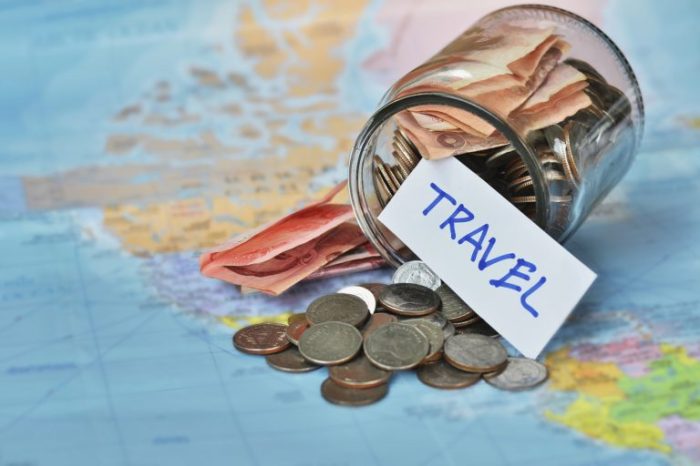
Travel hacking is the art of maximizing your travel experiences while minimizing your expenses. It’s about using points, miles, and other rewards programs to get free or discounted flights, accommodations, and even travel experiences. It involves leveraging strategic planning, credit card bonuses, and a little bit of savvy to turn your travel dreams into reality.
Understanding Points and Miles
Points and miles are the currency of travel hacking. They are rewards earned through credit card spending, airline loyalty programs, and hotel programs. These points can be redeemed for flights, hotel stays, upgrades, and other travel-related expenses.
- Credit Card Bonuses:Many credit cards offer sign-up bonuses of tens of thousands of points or miles. These bonuses can be used to book free flights or hotel stays.
- Airline Loyalty Programs:Frequent flyer programs reward you with points for flying with a specific airline. You can earn points for every dollar spent on flights, as well as for other activities like shopping and dining. These points can be redeemed for free flights, upgrades, and other perks.
- Hotel Loyalty Programs:Similar to airline loyalty programs, hotel programs offer points for staying at their hotels. These points can be redeemed for free nights, upgrades, and other benefits.
Utilizing Travel Hacking Tools and Resources, How To Make Travel An Investment $$$
There are a plethora of online resources and tools that can help you optimize your travel hacking strategies.
- Point and Mile Calculators:These tools help you determine the value of your points and miles and find the best ways to redeem them.
- Travel Search Engines:Websites like Google Flights and Kayak allow you to compare prices for flights and hotels from multiple airlines and hotels. These websites can also help you find deals and promotions.
- Travel Forums and Blogs:Online communities dedicated to travel hacking can provide valuable insights, tips, and advice from experienced travel hackers.
Ethical Considerations and Potential Drawbacks
While travel hacking can be a great way to save money and experience the world, it’s important to be aware of the ethical considerations and potential drawbacks.
- Credit Card Debt:The allure of sign-up bonuses can lead to overspending and accumulating credit card debt. It’s crucial to only apply for cards you can afford to pay off.
- Changing Reward Programs:Airlines and hotels frequently change their reward programs, which can devalue your points or miles. It’s essential to stay informed about program updates.
- Limited Availability:Award flights and hotel rooms can be limited, especially during peak travel seasons. It’s important to book in advance to secure the best deals.
Travel-Related Income Generation
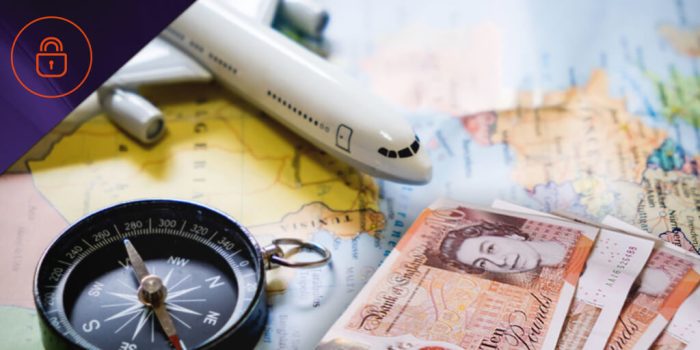
Travel doesn’t have to be an expense; it can be a source of income! Many individuals are turning their passion for travel into lucrative ventures. You can leverage your travel experiences and skills to earn money while exploring the world.
Travel Blogging and Vlogging
Travel blogging and vlogging are popular ways to monetize your travel experiences. You can share your adventures, tips, and recommendations with a global audience.
- Content Creation:Write engaging blog posts, create captivating videos, and share stunning photos of your travels. Focus on providing valuable content that resonates with your target audience.
- Monetization Strategies:There are various ways to monetize your travel blog or vlog.
- Affiliate Marketing:Partner with travel brands and promote their products or services through affiliate links. Earn a commission for each sale made through your links.
- Sponsored Content:Collaborate with brands to create sponsored posts or videos. This involves showcasing their products or services in exchange for payment.
- Advertising:Display ads on your website or videos.
- Selling Digital Products:Create and sell e-books, courses, or other digital products related to travel.
- Selling Physical Products:Offer merchandise like t-shirts, mugs, or travel accessories with your blog or vlog branding.
Travel Photography
If you have a knack for capturing stunning travel photos, you can turn your passion into a profitable career.
- Building a Portfolio:Create a strong portfolio showcasing your best travel photography.
- Marketing Your Services:Market your services to travel bloggers, publications, and brands seeking high-quality travel images.
- Monetization Strategies:
- Selling Stock Photos:Submit your photos to stock photo websites and earn royalties when they are licensed by others.
- Offering Photography Tours:Lead photography tours in popular travel destinations, sharing your expertise and guiding participants in capturing stunning shots.
- Printing and Selling Photos:Print and sell your photos as fine art prints, postcards, or other merchandise.
Freelance Travel Writing and Editing
Travel writing and editing offer freelance opportunities for those who have a passion for writing and travel.
- Writing Services:Offer your writing skills to travel publications, websites, and blogs. You can write destination guides, travel articles, and reviews.
- Editing Services:Provide editing and proofreading services to travel writers, publishers, and bloggers.
- Monetization Strategies:Freelance travel writers and editors typically work on a per-project or hourly basis.
Travel Consulting
If you have extensive travel experience and expertise, you can offer travel consulting services.
- Expertise:Provide personalized travel advice, itinerary planning, and destination recommendations.
- Target Audience:Target individuals or groups seeking customized travel experiences.
- Monetization Strategies:Charge hourly rates or package fees for your consulting services.
Travel as a Tool for Personal Growth
Travel isn’t just about ticking destinations off a list; it’s a powerful tool for personal development and self-discovery. Stepping outside your comfort zone, immersing yourself in different cultures, and navigating unfamiliar situations can lead to profound transformations.
The Transformative Power of Travel
Travel can ignite a spark of personal growth in numerous ways. By exposing yourself to diverse perspectives, you broaden your horizons, challenge your assumptions, and gain a deeper understanding of yourself and the world around you. This journey of self-discovery often leads to increased confidence, resilience, and a more open-minded approach to life.
Examples of Personal Growth Through Travel
- Enhanced Communication Skills:Travel forces you to communicate with people from different backgrounds, often with limited shared language. This process hones your ability to express yourself clearly, listen attentively, and adapt your communication style to diverse audiences.
- Cultural Sensitivity:Travel immerses you in different cultures, customs, and traditions. This exposure fosters empathy, understanding, and a respect for diversity. You learn to appreciate different ways of life and develop a more inclusive perspective.
- Increased Adaptability:Traveling requires navigating unfamiliar situations, from language barriers to transportation challenges. You develop the ability to think on your feet, problem-solve creatively, and adjust to unexpected circumstances. This adaptability translates to greater resilience and resourcefulness in all aspects of life.
Maximizing the Personal Growth Potential of Travel Experiences
To maximize the personal growth potential of your travel experiences, consider these strategies:
- Embrace the Unexpected:Don’t be afraid to step outside your comfort zone and embrace spontaneity. Say yes to new experiences, even if they seem daunting. This approach can lead to unexpected discoveries and significant personal growth.
- Engage with Locals:Seek out opportunities to connect with locals. Engage in conversations, participate in cultural events, and learn about their perspectives. This interaction fosters deeper understanding and personal enrichment.
- Reflect on Your Experiences:Take time to reflect on your experiences and the lessons learned. Journaling, meditating, or simply pausing to contemplate can help you process your insights and integrate them into your life.
- Apply What You’ve Learned:Bring the lessons learned from your travels back into your daily life. Use your newfound skills and perspectives to navigate challenges, build stronger relationships, and contribute to a more positive world.
Investing in Travel Experiences
Travel is an investment in yourself, and investing in experiences can yield incredible returns on your investment. Think about it, you’re investing in memories, knowledge, and personal growth that will stay with you long after the trip is over.
Travel Experience Investment Comparison
To understand how different types of travel experiences can be considered investments, let’s compare them based on cost, potential return on investment (ROI), and personal growth opportunities.
| Experience Type | Cost | ROI Potential | Personal Growth |
|---|---|---|---|
| Backpacking | Low | High | Cultural immersion, adaptability, resourcefulness |
| Luxury Travel | High | Moderate | Relaxation, pampering, unique experiences |
| Adventure Tourism | Moderate to High | Moderate to High | Physical challenges, adrenaline rush, self-discovery |
| Volunteer Travel | Low to Moderate | High | Giving back, cultural understanding, personal fulfillment |
Travel and Retirement Planning
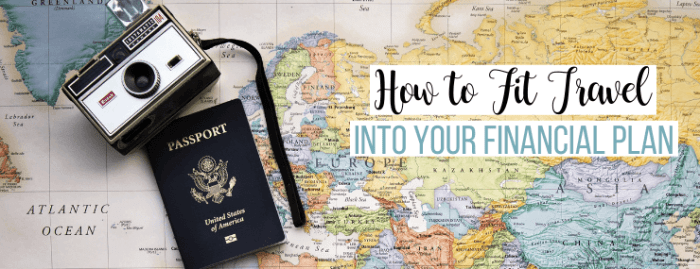
Retirement is often envisioned as a time for relaxation, exploration, and pursuing passions. Travel plays a significant role in achieving this fulfilling lifestyle, offering opportunities to experience new cultures, create lasting memories, and stay active and engaged.
Incorporating Travel into a Retirement Budget
A key aspect of retirement planning involves creating a budget that accommodates travel expenses. This involves considering factors such as desired travel frequency, destinations, and travel style. A detailed breakdown of potential travel expenses can help retirees make informed decisions about how to allocate their funds.
- Accommodation:This can range from budget-friendly hostels and guesthouses to luxury hotels and resorts. Consider factors such as location, amenities, and personal preferences when making a choice.
- Transportation:Flights, trains, buses, and rental cars are all options for getting around. Choosing the most cost-effective option depends on the distance, travel time, and personal comfort levels.
- Activities and Attractions:Exploring local attractions, museums, and cultural experiences can significantly impact travel expenses. Researching free or discounted options can help stretch your budget.
- Food and Beverages:Eating out can be a significant expense, especially when traveling to popular tourist destinations. Cooking meals in a rental accommodation or seeking out local markets and restaurants can help save money.
Finding Affordable Travel Options for Retirees
Retirement often brings financial constraints, making it crucial to find affordable travel options. Several strategies can help retirees maximize their travel experiences without breaking the bank.
- Off-Season Travel:Traveling during shoulder seasons, typically between peak tourist seasons, can offer significant savings on flights, accommodation, and activities. This is especially true for popular destinations that experience high tourist volume during peak periods.
- Senior Discounts:Many airlines, hotels, and attractions offer senior discounts for travelers aged 65 and above. Check for these discounts before booking to potentially save money on various travel expenses.
- Volunteer Travel:Combining travel with volunteering can provide an immersive cultural experience while contributing to a worthy cause. Many organizations offer opportunities for retirees to volunteer their skills and experience in exchange for accommodation, meals, and sometimes even travel expenses.
- Home Exchange Programs:These programs allow retirees to exchange their homes with other travelers, offering free accommodation in exchange for providing a similar service to another homeowner. This can be a great way to experience different cultures and lifestyles while saving on accommodation costs.
Travel Insurance and Safety Considerations
Travel insurance is a crucial element of responsible travel planning, safeguarding your investment and providing peace of mind. By protecting you from unexpected events, it can prevent financial strain and ensure a smoother, more enjoyable journey.
Types of Travel Insurance Coverage
Travel insurance offers a variety of coverage options, each designed to address specific risks. Understanding the different types of coverage can help you choose a policy that aligns with your individual needs and travel plans.
- Medical Expenses:Covers costs associated with medical emergencies, including hospitalization, doctor visits, and medication, while traveling abroad.
- Trip Cancellation and Interruption:Reimburses you for non-refundable trip expenses if you need to cancel or interrupt your trip due to unforeseen circumstances, such as illness, injury, or family emergencies.
- Baggage Loss and Damage:Provides compensation for lost or damaged luggage, including personal belongings and essential items.
- Emergency Evacuation and Repatriation:Covers the costs of medical evacuation and repatriation in case of serious illness or injury while traveling.
- Travel Delay:Offers reimbursement for expenses incurred due to unexpected delays in your travel plans, such as flight cancellations or weather-related disruptions.
Travel Safety Tips
Maintaining safety while traveling is essential for a worry-free and enjoyable experience. Here are some practical tips to help you stay safe and minimize risks:
- Research Your Destination:Before traveling, familiarize yourself with local laws, customs, and safety guidelines. Be aware of any potential risks or areas to avoid.
- Keep Your Valuables Secure:Protect your passport, credit cards, and other important documents by using a money belt or secure travel pouch. Avoid displaying expensive jewelry or carrying large amounts of cash.
- Be Mindful of Your Surroundings:Stay alert and aware of your surroundings, especially in crowded areas or unfamiliar neighborhoods. Avoid walking alone at night and trust your instincts if something feels off.
- Practice Safe Food and Water Habits:Only drink bottled water or water that has been properly purified. Be cautious about consuming food from street vendors, especially in areas with questionable hygiene standards.
- Share Your Itinerary:Inform a trusted friend or family member of your travel plans, including your accommodation details and itinerary. This way, someone will know where you are in case of an emergency.
- Be Prepared for Emergencies:Pack a small first-aid kit, including essential medications, bandages, and antiseptic wipes. Familiarize yourself with local emergency numbers and the location of the nearest hospital or clinic.
Sustainable Travel Practices
Sustainable travel is about minimizing your impact on the environment and local communities while you explore the world. It’s about being a responsible traveler and ensuring that future generations can enjoy the same destinations.
Eco-Friendly Travel Practices
Adopting eco-friendly practices is crucial for sustainable travel. These practices help reduce your environmental footprint and contribute to a healthier planet.
Thinking about turning your travel into an investment? One way to do that is by experiencing the world’s most breathtaking natural wonders. Check out this list of the Top 25 Natural Wonders Of The World , and start planning your next adventure! These iconic landscapes can inspire you to create content, build your brand, and even turn your passion for travel into a profitable side hustle.
- Choose sustainable transportation options:Opt for public transportation, cycling, or walking whenever possible. If you’re flying, consider carbon offsetting programs to compensate for your emissions.
- Reduce water usage:Take shorter showers, use water-saving showerheads, and avoid filling bathtubs. Be mindful of water usage in hotels and resorts.
- Minimize waste:Pack reusable water bottles, shopping bags, and cutlery. Avoid single-use plastics and dispose of waste responsibly.
- Choose eco-friendly accommodations:Look for hotels and guesthouses that have sustainable practices in place, such as using renewable energy sources, reducing water consumption, and recycling.
- Support local businesses:Patronize local shops, restaurants, and markets. This helps boost the local economy and reduces the environmental impact of mass tourism.
Responsible Tourism Initiatives
Responsible tourism initiatives aim to create positive impacts on local communities and the environment.
- Community-based tourism:This involves working with local communities to develop tourism projects that benefit them directly. It promotes cultural exchange, preserves local traditions, and supports sustainable development.
- Ecotourism:This focuses on responsible travel to natural areas that conserves the environment and sustains local communities. It often involves activities like wildlife viewing, hiking, and birdwatching.
- Fair trade tourism:This encourages travelers to support businesses that adhere to fair trade principles, ensuring fair wages and working conditions for employees.
- Slow travel:This emphasizes spending more time in fewer destinations, allowing for deeper immersion in local cultures and a more sustainable travel experience.
Choosing Sustainable Travel Options
Making sustainable choices when traveling is easier than you might think. Here’s how to minimize your environmental footprint:
- Research destinations:Look for destinations with strong sustainability initiatives and responsible tourism practices.
- Choose eco-friendly accommodations:Look for hotels and guesthouses that have certifications like LEED or Green Globe, indicating their commitment to sustainability.
- Pack thoughtfully:Bring reusable items like water bottles, bags, and cutlery to reduce waste. Avoid packing unnecessary items that add to your luggage weight and carbon footprint.
- Respect local customs and traditions:Dress appropriately, be mindful of noise levels, and avoid disturbing wildlife or sensitive ecosystems.
- Support local businesses:Patronize local markets, restaurants, and shops to contribute to the local economy and reduce the environmental impact of mass tourism.
The Future of Travel Investment

The travel industry is constantly evolving, driven by technological advancements, changing consumer preferences, and a growing emphasis on sustainability. These shifts present both challenges and opportunities for savvy travelers and investors. Understanding the emerging trends and their implications can help you position yourself for success in the future of travel.
The Impact of Technology and Automation
Technology is revolutionizing the travel industry, offering new ways to plan, book, and experience trips.
Investing in travel can be a game-changer for your life. It’s not just about the experiences, it’s about the growth, the memories, and the stories you collect. And if you’re looking for a place to invest in, check out the Top 25 Places To Visit In The Nordics.
From stunning landscapes to vibrant cities, the Nordic region offers something for everyone. So, make travel an investment and explore the beauty of the world!
- Artificial Intelligence (AI) and Machine Learning (ML):AI and ML are transforming travel planning by providing personalized recommendations, optimizing itineraries, and automating tasks like booking flights and accommodations. Travel companies are increasingly using AI to analyze data, predict demand, and offer tailored experiences.
- Virtual Reality (VR) and Augmented Reality (AR):VR and AR technologies are allowing travelers to virtually explore destinations before booking, enhancing the pre-trip experience. They can also provide interactive tours and immersive experiences during their travels. For example, VR experiences can transport you to a bustling marketplace in Morocco or a serene beach in the Maldives.
- Blockchain and Decentralized Finance (DeFi):Blockchain technology is introducing transparency and efficiency to the travel industry, allowing for secure and transparent transactions. DeFi is enabling travelers to access financial services, such as travel insurance and payments, in a more decentralized and accessible manner.
Conclusion
So, buckle up, pack your bags, and get ready to transform your travel habits into a smart investment. With the right strategies, travel can become a source of financial gain, personal growth, and unforgettable experiences. This isn’t just about seeing the world, it’s about making the world work for you.
FAQ Overview: How To Make Travel An Investment $$$
How can I make travel more affordable?
There are tons of ways to save on travel! Look for off-season deals, consider alternative accommodations like hostels or Airbnb, and use public transportation instead of taxis. Travel hacking can also unlock incredible discounts and even free flights.
What are some travel-related income streams?
Travel blogging, vlogging, photography, freelance writing, tour guiding, and even becoming a travel agent are just a few examples. The key is to find a niche you’re passionate about and build a brand around it.
Is travel insurance really necessary?
Absolutely! Travel insurance protects you against unexpected events like medical emergencies, flight cancellations, and lost luggage. It’s an investment in peace of mind, especially when you’re traveling abroad.

